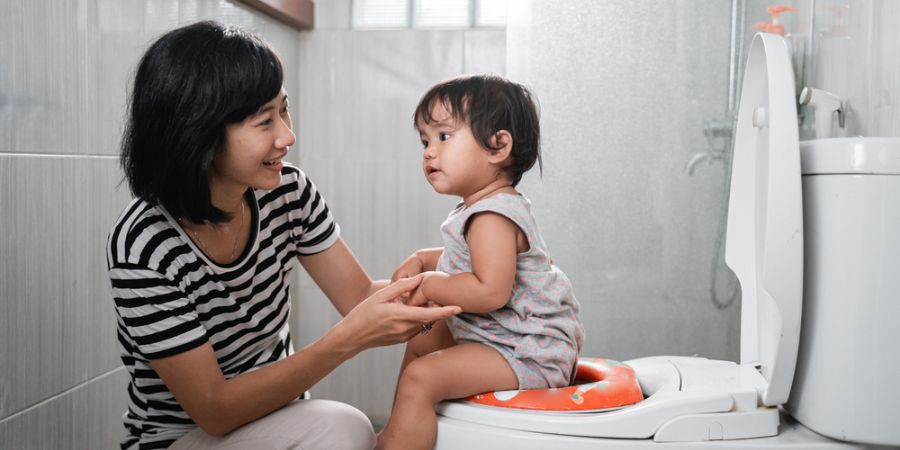Key Takeaways:
- Incontinence is prevalent in adults with autism with over 80% experiencing some type of bladder or bowel dysfunction according to some studies.
- Adults with autism and incontinence can manage their conditions by finding the proper support, using adaptive clothing, and using incontinence products.
- Adults with autism and incontinence may qualify to receive free incontinence supplies through insurance with Aeroflow Urology.
Autism spectrum disorder (ASD) can affect social, communication, and behavioral skills, and many adults with autism also experience incontinence.
Explore the types of incontinence common in autistic adults and get practical tips for managing the conditions.
Check Your Eligibility
In Under 2 Minutes
Discover the incontinence products available through your insurance.
Jump To:
Incontinence & Autism in Adults
How to Manage Autism & Incontinence in Adults
How to Get Free Adult Incontinence Supplies Through Insurance
INCONTINENCE PRODUCTS THROUGH INSURANCE:
Aeroflow Urology is in-network with many Medicaid and Medicaid-managed insurance plans and is accredited by Medicaid. Complete our Eligibility Form, and we’ll automatically check to see if your plan covers incontinence supplies. ***Must meet certain requirements to qualify.***
You will also receive the care and attention every person managing incontinence deserves: A personalized list of 100% insurance-covered incontinence supplies, a dedicated Continence Care Specialist you can contact during business hours, a user-friendly online portal for easy monthly reordering, and educational content.
Get the continence care you need with the dignity you deserve. Join the Aeroflow Urology family today! It only takes 5 minutes to get started.
Autism in Adults
ASD is a condition that is defined by many different challenges that may have to do with an individual’s social and communication skills and behaviors. There are varying degrees of autism and each person with autism has different abilities and challenges.
While autism is commonly associated with children, 2.21% of adults ages 18 and older in the U.S. have the condition as of 2017. Autism is a lifelong condition. However, some individuals may be diagnosed with autism later in life as an adult rather than as a child.
Some signs of autism in adults include:
- Other underlying medical conditions, such as anxiety, depression, attention-deficit/hyperactivity disorder (ADHD), etc.
- Communication challenges.
- Gastrointestinal (GI) issues.
- Sensory challenges.
- Becoming anxious in social situations or when routines change.
- Difficulty making friends.
- Not understanding rules.
- Avoiding eye contact.
- Loss of bladder and / or bowel control (incontinence).
Incontinence & Autism in Adults
Typically the connection between autism and incontinence in adults is multifaceted.


Incontinence is common in adults with autism. According to one Pub Med study, about 82% of adults with autism in the study experienced some type of incontinence, including different types of urinary incontinence and bowel incontinence.
The most common types of incontinence experienced by adults with autism are functional incontinence and overflow incontinence. While stress incontinence can also occur, it is less common and typically seen when repetitive behaviors like jumping and running increase abdominal pressure on the bladder.
Other common types of incontinence experienced by adults with autism are overactive bladder (OAB), urinary incontinence, nocturnal enuresis, urge incontinence, dysfunctional voiding, and fecal incontinence.
Common Types of Incontinence
OAB: Up to 87% of individuals with autism experience OAB. Symptoms include urinating more frequently than usual and feeling the sudden and intense urge to urinate, leading to leakage.
Nocturnal enuresis: Up to 72% of individuals with autism experience nocturnal enuresis. Also known as bedwetting, symptoms include leaking urine while sleeping.
Stress incontinence: Leaking urine when jumping, running, sneezing, coughing, bending over.
Urge incontinence: Up to 31% of individuals with autism experience urge incontinence. Symptoms include feeling the sudden, intense, and frequent urge to urinate, leading to leakage.
Dysfunctional voiding: Up to 15% of individuals with autism experience dysfunctional voiding. Symptoms include having a difficult time emptying the bladder.
Fecal incontinence: Up to 33% of individuals with autism experience fecal incontinence. The main symptom of bowel incontinence is losing control over the bowels, leading to fecal leakage.
Functional incontinence: Some individuals with autism may experience functional incontinence. The main symptom is leaking urine or fecal matter due to the inability to recognize signs of needing to void or the inability to make it to the toilet in time.
How to Manage Autism & Incontinence in Adults
Managing incontinence in adults with autism may seem daunting, but with the right resources, you can help yourself or your loved one control incontinence leakage easily.
- Find support. It’s essential that if you or your loved one have autism and experience incontinence, you find support from healthcare professionals, whether you seek out pelvic floor physical therapy, primary care, or specialist care. Your or your loved one’s healthcare provider will be able to diagnose autism and properly diagnose which type of incontinence you’re experiencing. A primary care provider may also be able to provide you with a prescription for free incontinence products. Supporting yourself with a mental health therapist through individual and / or group therapy can also be helpful. Finding a support group with families in similar situations. There is comfort in knowing that you are not alone in this journey.
- Be patient and flexible. Routine can be good to start early even if the individual does not need to use the restroom.
- Accommodate in the bathroom. If you or your loved one are managing sensory sensitivities that deter you from using the bathroom (loud noises of toilet flushing, bright lights, etc.), you can try to accommodate by making the bathroom a calming place or using comfortable toilet seats.
- Wear adaptive clothing. Adaptive clothing may help with undressing and dressing when using the toilet. This type of clothing uses elastic waistbands instead of zippers or buttons to make changing easier. Using adaptive clothing may decrease the possibility of experiencing functional incontinence by speeding up the undressing process when needing to go to the bathroom.
- Use free incontinence products. If you or your loved one has been diagnosed with autism and incontinence, you may qualify to receive incontinence supplies at no cost through your insurance plan with Aeroflow Urology. Incontinence products can help to reduce anxiety about accidents, allow individuals to participate in daily and social activities without the continuous worry about incontinence. They can be a great way to help transition to more independent toileting and create confidence in being able to toilet on their own. Some individuals with ASD also have nocturnal enuresis or nighttime bedwetting. Incontinence products can aid in ensuring better sleep quality and quantity. Products like adult diapers, adult protective underwear (pull-ups), bladder control pads, and underpads help prevent leakage and keep you or your loved one dry and comfortable throughout the day or night.
- Avoid constipation. Constipation can increase or worsen urinary incontinence, so eat a diet full of whole foods and fiber to keep bowel movements healthy.
- Find caregiver support. If you’re a caregiver of a loved one with autism and incontinence, you can use different resources, such as the Aeroflow Urology Adult Facebook Support Group and the Aeroflow Urology blog to get helpful tips on how to manage autism and incontinence.
References
CDC. (2024, February 23). Key Findings: Estimated Number of Adults Living with Autism Spectrum Disorder in the United States, 2017. Autism Spectrum Disorder (ASD). https://www.cdc.gov/autism/publications/adults-living-with-autism-spectrum-disorder.html
Gubbiotti, M., Balboni, G., Bini, V., Elisei, S., Bedetti, C., Marchiafava, M., & Giannantoni, A. (2019). Bladder and bowel dysfunction, adaptive behaviour and psychiatric profiles in adults affected by autism spectrum disorders. Neurourology and Urodynamics, 38(7), 1866–1873. https://doi.org/10.1002/nau.24081
NHS. (2022, November 11). Signs of Autism in Adults. NHS. https://www.nhs.uk/conditions/autism/signs/adults/
Marilena Gubbiotti, Matteo Balzarro, Zoccante, L., Gianfranco Di Gennaro, Marchiafava, M., Chiara Bedetti, & Emanuele Rubilotta. (2024). National Survey on bladder and bowel dysfunctions in Autism Spectrum Disorder population. Frontiers in Psychiatry, 15. https://doi.org/10.3389/fpsyt.2024.1140113
Disclaimer
Information provided on the Aeroflow Urology blog is not intended as a substitute for medical advice or care from a healthcare professional. Aeroflow recommends consulting your healthcare provider if you are experiencing medical issues relating to incontinence.













